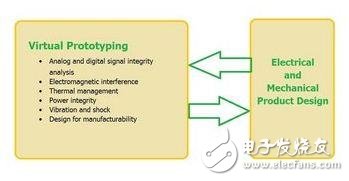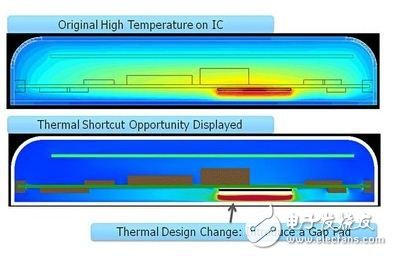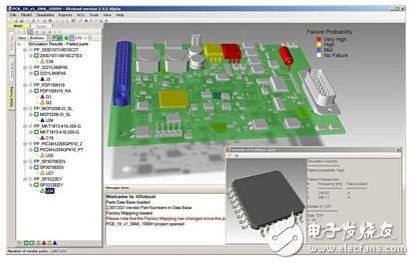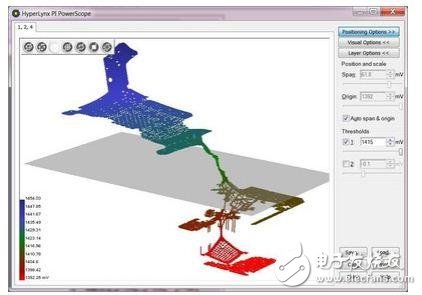1. Preface, background
Automotive electronics is not completely different from other complex electronic products: multiple central processors, networks, real-time data collection, and extremely complex PCBs. The design pressure of the automotive industry is similar to other types of electronic products: short design time and fierce market competition. So what is the difference between automotive electronics and electronics such as some high-end entertainment products? A world apart! If the PCB fails in an entertainment product, people's lives are not threatened; but if something goes wrong in the car, people's lives are in jeopardy. Therefore, the reliability design of automotive electronic components is a major aspect to be considered in the design process.
2. The main points and outline of the full text are as follows:
a. Time and cost pressure
As with all products that are under pressure from design time and development costs, automotive components are no exception. A development practice can help electronics companies meet these basic business goals by using virtual prototyping to analyze designs and create multiple physical prototypes at no cost and time, testing these models and making test results based on the results. Incremental modifications. In addition, many factors that affect product reliability can be discovered after weeks, months, or years of physical damage. Therefore physical prototypes in these cases are not a viable way. Even in the experimental cabin, you can't accurately and accurately replicate years of physical oscillations, thermal environments, vibrations, and temperature cycling damage.
b. Simulation is the key
Simulation, or virtual prototyping, has become an increasingly important step in the design process. Like ExpediTIon Enterprise, which is a conductive conductor, a complex PCB system design solution contains many forms of virtual prototyping.

Figure 1 – Virtual prototypes should be used throughout the design process to reduce cycle times and costs, and to create a reliable product.
c. Thermal control
The most critical point affecting reliability (here in terms of performance) is heat. Overheating of integrated circuits (ICs) can cause problems over time, and the automotive environment can become very ruthless. For example, overheating the components in the engine compartment, or driving through the climate from the winter in Michigan to the summer in Arizona. From the beginning of the IC package, through the PCB, to the complete product in the operating environment, should be able to control the heat.

Figure 2 – Determining the thermal shortcuts can lead the designer to make changes that can make a big difference in heat dissipation.
The use of complex thermal analysis in the field of PCB design and mechanical design provides better thermal management and reliability without the need to build and test multiple physical prototypes. This saves a lot of time and money. In addition, with easy-to-use software that is tightly integrated with the design system, designers can quickly experiment with multiple “what if†scenarios and get better performance Solutions.
d. High accelerated life test
Another cause of reliability problems in vehicles is the continued vibration of the PCB and subsequent component lead and accessory failures. It is generally possible to detect the occurrence of a fault by constructing a prototype and placing them in an acceleration chamber to cause vibration and temperature cycling tests on the PCB. As the design progresses, this approach requires the construction of multiple prototypes, and typically takes weeks or even months to complete the simulation of the expected life of the automotive components in the acceleration chamber. This is a very time consuming and costly process, so reliability enhancement testing may not be complete and comprehensive.
There are currently software that can perform the same tests in virtual prototyping mode. Designers can use this software to define the PCB and easily perform loss simulation experiments. The software performs complex analysis in a matter of hours and points out possible failures (Figure 3).

Figure 3: Mentor's HALT software can perform oscillation, vibration, and temperature cycle failure analysis in a matter of hours, while in the test room it can take weeks or even months.
e. Power integrity analysis ensures high reliability
Power integrity is an increasingly complex issue in electronics design.

Figure 4: Mentor's HyperLynx Power Integrity Analysis determines high-level current density space and possible long-term printed circuit board failures
A narrow space can lead to serious reliability problems that may not be apparent until a few years later. Excessive current will cause the space temperature to rise, causing the PCB to burn out or explode like a fuse. These distribution networks can now be analyzed in software and the virtual prototype and high current density space can be determined. The designer can then expand the space or create parallel current paths in adjacent layers to solve this problem while maintaining IC sufficient current supply.
It is not practical to test the current density problem by using a physical prototype in the test chamber because it may not cause a fault in a few years. And the problem may never show up, causing subsequent failures in this area.
3. Summary of the research report
Reliability is very important in automotive electronics, and nowadays, in view of the time-to-market and cost reductions, it is increasingly necessary to analyze the physical prototypes in the software virtual prototype environment relative to the test room. At present, due to the existence of software, electronic and mechanical designers can carry out more simulation programs.
Fiber Optic Ip68 Connectors,Ip68 Hardened Connections Connector,Ftta Ip68 Hardened Connections Cord,Fiber Optic Enclosure Outdoor
Huizhou Fibercan Industrial Co.Ltd , https://www.fibercannetworks.com